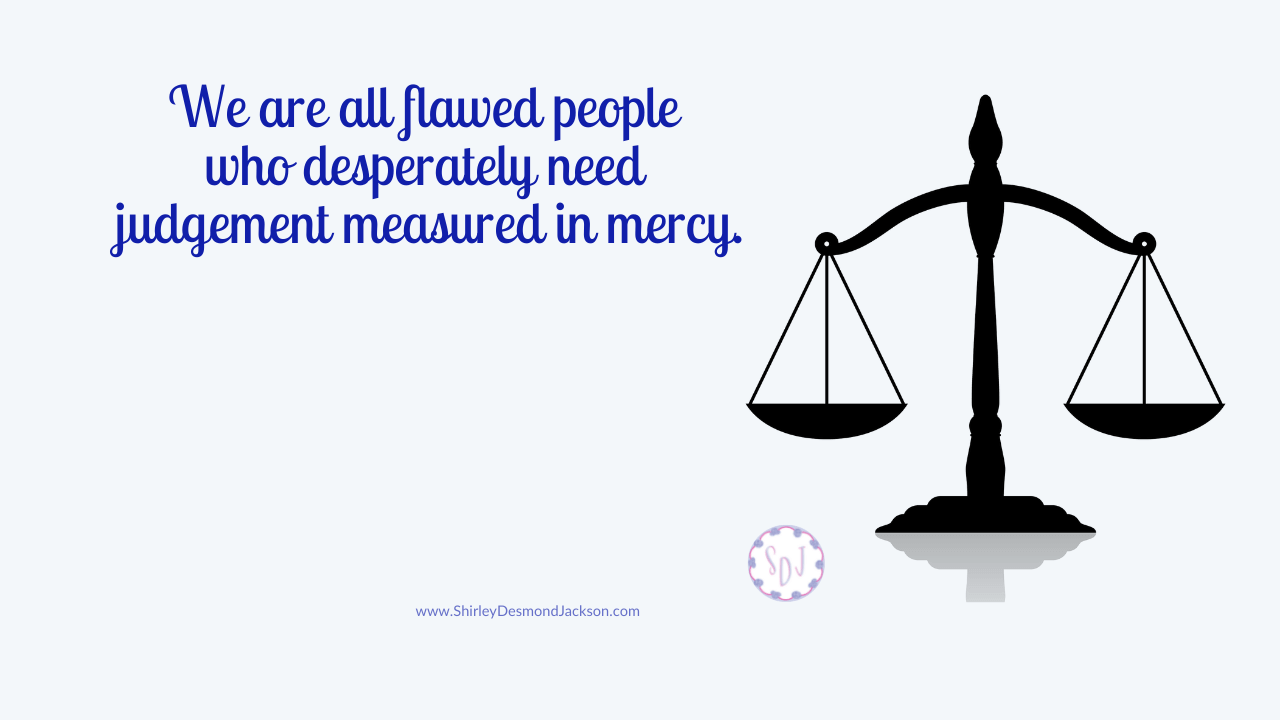Can We Judge Others With Love?
Out of habit I glanced at the church’s placard as I drove home: You don’t need to judge. I’ve got it covered. God
Hmmm… nice reminder, I thought. But later that week, I realized how difficult it can be to leave judgment to God. A dear friend, one I admire and respect, decided to do something out of character. Something contrary to the way Jesus calls us to live. Although some friends shared a Biblical perspective on his decision, he refused to listen.
As he stubbornly dug in his heels, I grew angry. Afraid I would say something harsh, I began to avoid him. As the week wore on and he showed no sign of reconsidering his decision, I remembered the statement posted by the church, which led me to this teaching by Jesus:
“Do not judge, or you too will be judged. For in the same way you judge others, you will be judged, and with the measure you use, it will be measured to you. (Matthew 7:1-2 NIV)
By themselves, these verses definitely discourage judging others. But is this really what Jesus meant? Just a few verses later He taught we can recognize false prophets by the fruit of their lives. (Matthew 7:15-20) Later He gave instructions for dealing with people who sin against us. (Matthew 18:15-17) The first Christians received similar advice from the Apostle Paul. (Galatians 6:1)
Given the context of the whole Bible, these verses seem to indicate the heart we should have when we judge the actions of others. Historical and cultural evidence supports this theory as well. During the time of Jesus’ ministry, some rabbis were teaching the people that God had two distinct measures for judgement: mercy and justice. So, according to Jesus, if I judge people with a heart that seeks justice, God will judge me in the same way. But if I want God to judge me with mercy, I need to be merciful as I judge others.
To further illustrate His point, Jesus used a humorous hyperbole:
“Why do you look at the speck of sawdust in your brother’s eye and pay no attention to the plank in your own eye? How can you say to your brother, ‘Let me take the speck out of your eye,’ when all the time there is a plank in your own eye? You hypocrite, first take the plank out of your own eye, and then you will see clearly to remove the speck from your brother’s eye. (Matthew 7:3-5 NIV)
It is so easy to be blind to our own sin. But this type of spiritual blindness leads to justice-seeking judgement. When we forget our own sinful state, we also forget our own need for grace.
As I’ve wrestled this week, I discovered something else hindering me from judging with mercy: my ability to see people as separate from their sin.
Jesus, being fully God, could do this perfectly. This is how He could love people, yet hate their sin. I’ve found it’s not so easy for us humans. Sometimes we overlook sin in order to love people. Other times our hatred for their sin makes it difficult for us to love them. What makes the difference is how strongly we feel about the sin we are judging.
This week my heart landed in the second category. Although my friend didn’t sin against me personally, I’ve been hurt by others who committed the same sin. So I have a deeper distaste for it. Which made it easy for me to hate the sin, but struggle to love the sinner.
As I understood this, I could finally release the anger and the hatred. I found it easier to love my friend, even though his decision still saddened me. Through Jesus, we truly can love people, even if we don’t approve of all their decisions. It really does boil down to this:
We are all flawed people who desperately need judgement measured in mercy.
Wherever the road leads me next, I pray to judge others using the measure of mercy. Wherever your journey takes you, I pray you can do the same.


Great post Shirley!
I have often tangled with this concept in my own mind. The scripture in 2 Corinthians (paraphrasing) “the man of God judges all things” and the verse you used in Matt 7:1-2, “do not judge” mess with me. I appreciate you bringing it down to the heart (which is what God always looks at, right?!) of the matter. Pointing us to Jesus and his ability to judge with ALL LOVE is so perfect. Your faithful, authentic voice rings through so clear. Thank you dear friend!
Thank you Jody! Yes, a heart full of love is the right motivation for anything we do. Thank you for your encouragement. ????